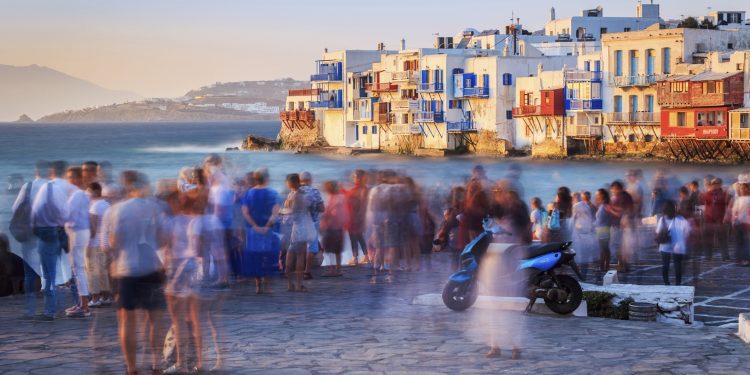Greece, with its rich history, stunning landscapes, and diverse islands, is a year-round destination that offers something unique in every season. Whether you’re looking to explore ancient ruins, bask in the sun on a pristine beach, or experience local festivals, knowing the best time to visit can make all the difference. This month-by-month travel planner will guide you through the best times to visit Greece based on your interests and what you hope to experience.
January: Winter Calm and Cultural Exploration
January is one of the quietest months in Greece, making it an ideal time for those who prefer fewer crowds. While the islands may be too cold and windy for beach activities, the mainland and larger cities like Athens and Thessaloniki are perfect for cultural exploration.
- Pros: Lower prices, fewer tourists, great for visiting museums and archaeological sites.
- Cons: Cooler weather, limited services on the islands.
Tip: Explore Athens’ museums and ancient sites without the usual tourist crowds, and take advantage of the off-season discounts.
February: Carnival Celebrations and Winter Escapes
February in Greece is marked by Carnival (Apokries), a vibrant celebration leading up to Lent. This is a great time to experience Greek culture and traditions, especially in cities like Patras, which hosts one of the largest carnival parades in Europe.
- Pros: Festive atmosphere, cultural events, low tourist numbers.
- Cons: Cool weather, especially in northern Greece and the islands.
Tip: Join the Carnival celebrations in Patras or Thessaloniki, where you can enjoy parades, costumes, and traditional music.
March: Spring Awakens and Ancient Sites
March sees the beginning of spring in Greece, with mild weather and blooming wildflowers. This is an excellent time to explore ancient ruins and enjoy outdoor activities without the summer heat.
- Pros: Pleasant weather, blossoming landscapes, fewer tourists.
- Cons: Some islands still have limited services, cooler temperatures in the mountains.
Tip: Visit the ancient site of Delphi or the monasteries of Meteora, where the springtime landscapes add to the magical atmosphere.
April: Easter Festivities and Spring Beauty
April is one of the most beautiful times to visit Greece, as the countryside is lush and green. Easter is the most important holiday in Greece, celebrated with grand traditions and feasts, making it a culturally rich time to visit.
- Pros: Easter celebrations, perfect weather for sightseeing and hiking.
- Cons: Easter week can be busy with domestic travel, some islands are still warming up.
Tip: Experience Easter in a Greek village or on an island like Corfu, where the celebrations are particularly lively and traditional.
May: Blossoming Islands and Beach Season Begins
May is an ideal month to visit Greece, especially if you want to experience the islands before the summer crowds arrive. The weather is warm, flowers are in full bloom, and the sea is starting to warm up for swimming.
- Pros: Warm weather, fewer tourists, ideal for both sightseeing and beach activities.
- Cons: Some popular spots begin to see more visitors.
Tip: Explore the Cyclades islands like Santorini and Mykonos before the high season kicks in, enjoying the beauty without the crowds.
June: Early Summer Vibes and Cultural Festivals
June marks the start of summer, with long, sunny days perfect for island hopping, beach time, and exploring the mainland. Many cultural festivals also begin in June, adding to the vibrant atmosphere.
- Pros: Perfect beach weather, cultural festivals, still manageable crowds.
- Cons: Higher prices as the summer season starts.
Tip: Attend the Athens and Epidaurus Festival for performances in ancient theaters, and enjoy the quieter beaches before the peak season.
July: Peak Season and Island Adventures
July is peak tourist season in Greece, with hot weather, bustling beaches, and lively nightlife, especially on the popular islands. While it’s the busiest time of year, it’s also when Greece is at its most vibrant.
- Pros: Guaranteed hot weather, lively atmosphere, all attractions and services are open.
- Cons: High prices, crowded tourist areas, very hot temperatures.
Tip: If you visit in July, consider exploring less crowded islands like Milos or Naxos for a more relaxed experience.
August: Summer Heat and Festive Spirit
August is the hottest and busiest month in Greece. Many locals take their vacations during this time, especially around the August 15th holiday (Assumption of the Virgin Mary), which is one of the biggest celebrations in Greece.
- Pros: Vibrant festivities, full summer experience, great beach weather.
- Cons: High temperatures, very crowded, expensive accommodation.
Tip: Celebrate the August 15th holiday on an island like Tinos, known for its religious festivals, or escape the crowds in the mountainous regions of the mainland.
September: Ideal Weather and Harvest Season
September is a fantastic time to visit Greece. The weather is still warm, the sea is perfect for swimming, and the summer crowds have started to dwindle. It’s also the beginning of the grape harvest season in many wine regions.
- Pros: Warm weather, fewer crowds, great for wine lovers.
- Cons: Shorter days, some seasonal services begin to wind down.
Tip: Visit Crete or the Peloponnese for wine tours during the harvest season, and enjoy the beaches with fewer tourists.
October: Autumn Colors and Off-Peak Bliss
October brings cooler temperatures and a more relaxed vibe to Greece. The islands are quieter, making it an excellent time for those who prefer a slower pace. Autumn colors begin to appear in the mainland’s forests and vineyards.
- Pros: Cooler weather, fewer tourists, beautiful autumn landscapes.
- Cons: Shorter days, some islands start to close for the season.
Tip: Explore the mainland’s hiking trails or visit the island of Rhodes, which enjoys a longer tourist season and pleasant weather in October.
November: Quiet Escapes and Cultural Riches
November is a quiet month in Greece, making it ideal for cultural exploration in the cities and historical sites. The weather is cooler, but still pleasant enough for outdoor activities.
- Pros: Very few tourists, low prices, great for cultural and historical sites.
- Cons: Cooler weather, many islands have limited services.
Tip: Discover Athens’ cultural and historical sites, or explore Thessaloniki’s vibrant art and food scenes without the crowds.
December: Festive Cheer and Winter Adventures
December in Greece is marked by festive cheer, especially in the cities and larger towns. While the islands are mostly quiet, the mainland and mountainous regions offer winter activities, including skiing.
- Pros: Christmas markets, festive atmosphere, winter sports.
- Cons: Cold weather, many tourist services are closed on the islands.
Tip: Celebrate Christmas in Athens, where you can enjoy holiday lights, markets, and events, or head to the mountains for skiing and cozy winter escapes.
Conclusion: Find Your Perfect Time to Visit Greece
Greece offers something special every month of the year. Whether you’re looking to bask in the summer sun, explore ancient ruins, or immerse yourself in local culture, there’s a perfect time for your visit. By using this month-by-month travel planner, you can choose the best time to experience Greece in a way that aligns with your interests, ensuring a memorable and fulfilling trip.










